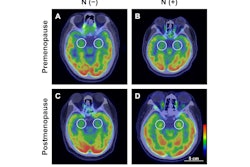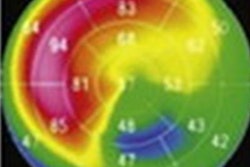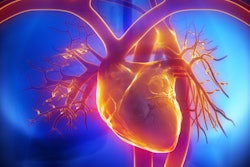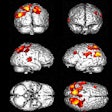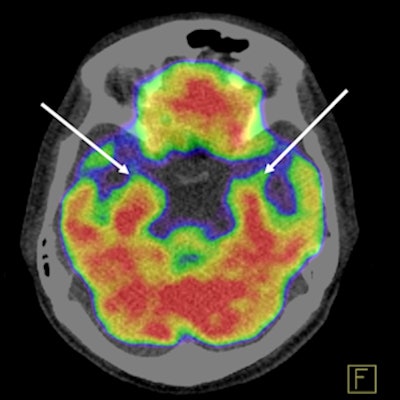
PET/CT has shown that increased activity in the amygdala region of the brain caused by stress can boost a person's risk of a sometimes-fatal heart condition called Takotsubo syndrome (TTS), also known as "broken heart" syndrome, according to a March 26 study in the European Heart Journal.
Understanding the connection between stress and TTS could help clinicians better care for patients at risk of the disease, wrote a team led by Dr. Azar Radfar of Massachusetts General Hospital (MGH) in Boston.
TTS manifests as a sudden weakening of the heart muscles that causes the left ventricle to swell at the bottom while the neck stays narrow, according to a statement released by the journal. It is often triggered by severe emotional distress like grief, anger, or fear, or even happiness and joy -- all of which occur in the amygdala, which also regulates the nervous system and heart function – and the condition is more common in women than in men, the journal said. TTS can lead to heart attacks and even death.
How stress may prompt TTS isn't clear, but the connection may involve "a multiorgan mechanism starting with activation of the stress-sensitive tissues of the brain," according to the researchers. This brain activity then sparks the release of stress hormones that activate the sympathetic nervous system, which then releases inflammatory cells, senior author Dr. Ahmed Tawakol, also of MGH, and colleagues wrote. The process may contribute to the development of TTS.
"Increased stress-associated neurobiological activity in the amygdala, which is present years before TTS occurs, may play an important role in its development and may predict the timing of the syndrome," Tawakol said in the journal statement. "It may prime an individual for a heightened acute stress response that culminates in TTS."
Tawakol, Radfar, and colleagues investigated whether there are changes in the brain activity of patients before TTS develops, using data from 104 people with an average age of 68 who underwent PET/CT scans at Massachusetts General Hospital between 2005 and 2019. Of the 104 patients, 41 went on to develop TTS between six months and five years after the scan, while 63 did not.
People who eventually developed TTS had more stress-related activity in the amygdala at initial scanning compared with those who did not develop the disease -- and the more the activity, the greater the TTS risk, the group found. In fact, "among the 41 patients who developed TTS, the top 15% with the very highest amygdalar activity developed TTS within a year of imaging, while those with less elevated activity developed TTS several years later," Tawakol said.
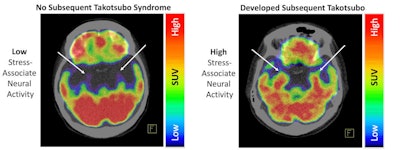 Images courtesy of the European Heart Journal.
Images courtesy of the European Heart Journal.The team also found that patients with autoimmune disease were more at risk of TTS, by 29.3% compared with 6.3% (p = 0.002). Other factors that increased TTS risk included hyperlipidemia, smoking, and cancer.
The study highlights the need for further investigation regarding how to reduce stress-related brain activity, according to an editorial that accompanied the investigation.
"A brain-heart connection has been long proposed as a critical factor for development of Takotsubo syndrome ... also known as 'stress-induced cardiomyopathy,' " wrote a team led by Dr. Hideaki Suzuki of Tohoku University Graduate School of Medicine in Sendai, Japan. "Heightened stress-associated neural activity may represent a therapeutic target to reduce TTS as well as other stress-related cardiovascular diseases, including chronic heart failure."






